Archbishop Eamon Martin’s 2025 New Year message
‘Forgive us our trespasses; disarm our hearts’
Message of Archbishop Eamon Martin for World Day of Peace, 1 January 2025
- Money earmarked for armaments should be used to tackle hunger, famine, the impact of climate change, the scourge of addictions, and the essential health and educational needs of millions of people throughout the world.
- The use of sophisticated and powerful weapons – especially in the midst of streets, homes, hospitals and schools – makes it difficult to distinguish so-called “modern warfare” from terror.
- The near-complete destruction of Gaza, and the bringing of its population to the brink of famine is, by any standard, a disproportionate measure.
New Year message
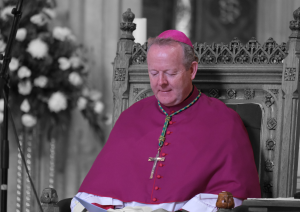 In his message for the World Day of Peace on 1 January, Pope Francis draws the world’s attention to the incredible amount of money and resources being spent on weapons of war. He echoes the urbi et orbi message he gave on Christmas Day, the morning after he had opened the Holy Door for the Jubilee Year of Hope 2025, when he said:
In his message for the World Day of Peace on 1 January, Pope Francis draws the world’s attention to the incredible amount of money and resources being spent on weapons of war. He echoes the urbi et orbi message he gave on Christmas Day, the morning after he had opened the Holy Door for the Jubilee Year of Hope 2025, when he said:
“Come! Jesus is the Door of Peace … entering through that Door … calls us to leave behind our disputes and divisions, surrendering ourselves to the outstretched arms of the Child who is the Prince of Peace … I invite every individual, and all peoples and nations, to find the courage needed to walk through that Door, to become pilgrims of hope, to silence the sound of arms and overcome divisions!”
In his message for World Day of Peace on 1 January, Pope Francis prays that the 2025 Jubilee Year of Hope may be a year in which peace shall flourish and hearts may be fixed on the goals of true peace and of building a better world. He makes a strong plea that a “fixed percentage of the money earmarked for armaments” might be used instead for “a global Fund” to eradicate hunger and facilitate “education for sustainable development and combating climate change.” Such a commitment, he says, would help “disarm hearts” that are so easily filled with anxiety, with the fear of war, or even a desire for vengeance.
Pope Francis reflects on the mercy with which God constantly forgives our sins and forgives our every debt. In this year of Jubilee he draws attention to the challenging words in the Our Father prayer: “Forgive us our trespasses as we forgive those who trespass against us.”
How much humanity needs God’s mercy and forgiveness for inflicting the horrors and brutality of war across the world today – in Gaza and other parts of the Holy land and Middle East; in Sudan, DRC, Yemen, Myanmar and Ukraine – sadly the list is long and shameful. We need to cry out for forgiveness for spending: (in 2023) an estimated US$2.5 trillion on armaments and military resources – an amount that has since been increasing, not decreasing. Such expenditure cannot be reconciled with our Christian commitment to reconciliation and peace, or with the beliefs of any of the world’s major faiths and religions, or with secular principles of the common good and the flourishing of humanity.
The use in war of more and more sophisticated and powerful weapons – especially in the midst of streets, homes, hospitals and schools – makes it difficult to distinguish so-called “modern warfare” from terror. How can tactics, which cause thousands of civilian deaths, alongside the whole scale destruction of food, water, health services and other infrastructure that is essential for survival, ever hope to restore justice and rights, resolve differences, respect human dignity, or provide a path for reconciliation and peace?
In the past 15 months, for example, we have witnessed not only the egregious 7th October 2023 terror attacks by Hamas and Islamic Jihad on Israel, including the taking of hostages – 100 of whom are still held captive in Gaza – but we have also seen a merciless and disproportionate response by Israel: over 45,000 people including 17,000 children have been cut down; two million people forcibly displaced; almost the entire population of Gaza is living in extreme hunger, and despite the reality of catastrophic famine conditions for hundreds of thousands of desperate civilians, humanitarian access is effectively blocked. International Humanitarian Law says that parties to a conflict cannot use disproportionate measures to achieve military objectives. The near-complete destruction of Gaza, and the bringing of its population to the brink of famine is, by any standard, a disproportionate measure.
I highlight Gaza not only because of the severe impact of this conflict, but because it is emblematic of the failure of the international community to prevent the escalation of conflict and to protect civilians. This is despite rulings of the International Court of Justice on protection from genocide, on illegal occupation of Territories and on systemic discrimination. I am conscious that people who have expressed similar views to these have been accused of anti-semitism. I wish to put it on record, once again, that I abhor the violations by Hamas and other Islamist militant groups against the people of Israel, and that I fully support the right of Israelis to live in peace and security. This right has to be achieved in the context of a just peace, where the legitimate rights of Palestinians are also protected in line with international law.
I pray today with Pope Francis, “May the sound of arms be silenced … May there be a ceasefire, may the hostages be released and aid be given to the people worn out by hunger and by war … May the doors of dialogue and peace be flung open throughout the region, devastated by conflict.”
On 1 January twenty-five years ago, on the occasion of the Great Jubilee Year of 2000, Pope John Paul II said: “Wars generally do not resolve the problems for which they are fought and therefore, in addition to causing horrendous damage, they prove ultimately futile. War is a defeat for humanity.” This is clearly seen when the world continues to tolerate the escalation in production, supply, trade and use of weapons of war while so many other human needs need to be prioritised and resourced – like tackling hunger, famine, the impact of climate change, the scourge of addictions, and the essential health and educational needs of millions of people – throughout the world.
Pope Francis’ reminds us that, “Peace does not only come with the end of wars but with the dawn of a new world, a world in which we realize that we are different, closer and more fraternal than we ever thought possible.”
That is why we should pray fervently with the Holy Father:
“Forgive us our trespasses, Lord,
as we forgive those who trespass against us.
In this cycle of forgiveness, grant us your peace,
the peace that you alone can give
to those who let themselves be disarmed in heart,
to those who choose in hope to forgive the debts of their brothers and sisters,
to those who are unafraid to confess their debt to you,
and to those who do not close their ears to the cry of the poor.”
Archbishop Eamon Martin, Archbishop of Armagh, Apostolic Administrator of the Diocese of Dromore and Primate of All Ireland
 |
 |
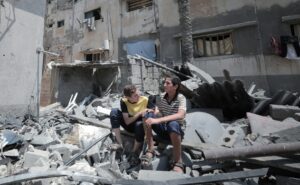 |



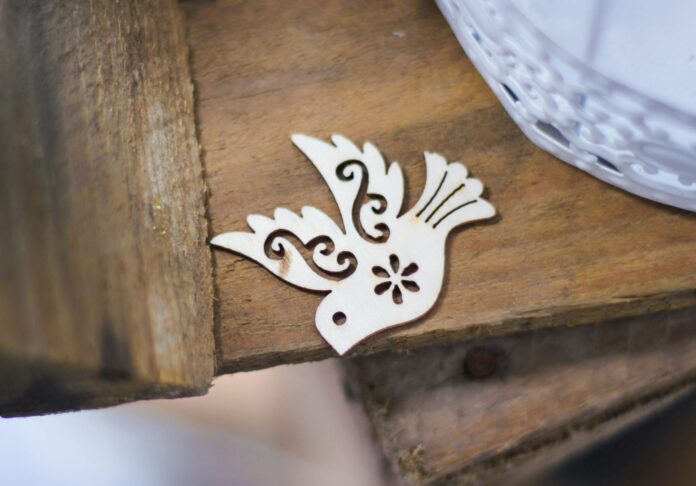
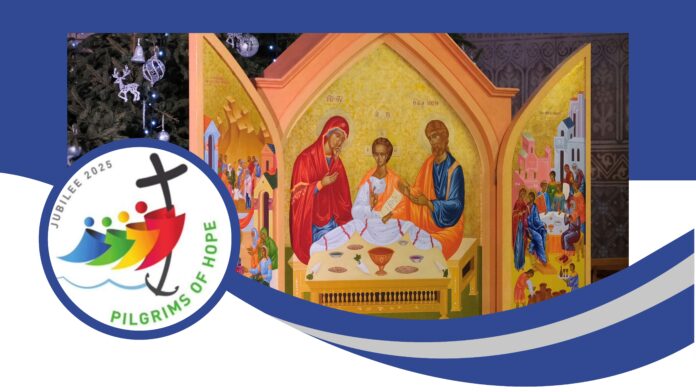
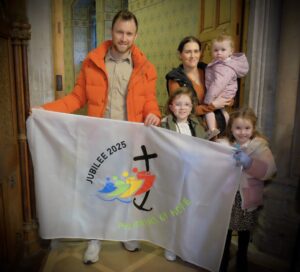 “There couldn’t be a better time for a Jubilee Year of Hope. We live in a world where anxiety, doubt and sometimes despair often appear to have the upper hand.”
“There couldn’t be a better time for a Jubilee Year of Hope. We live in a world where anxiety, doubt and sometimes despair often appear to have the upper hand.”
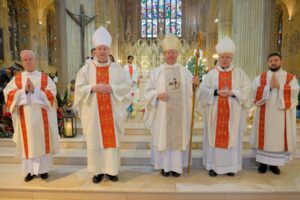
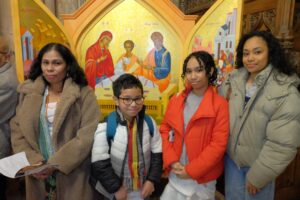
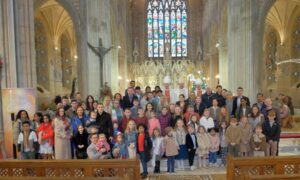
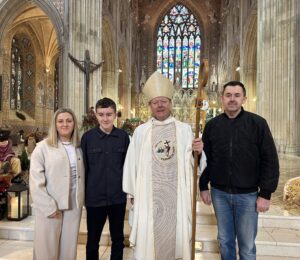
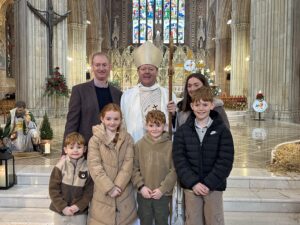
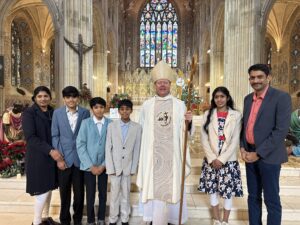
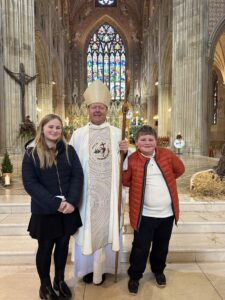
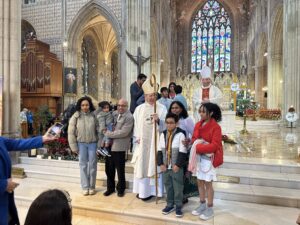
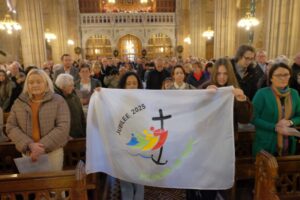
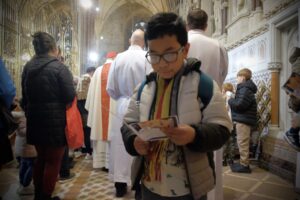
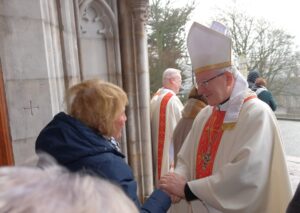
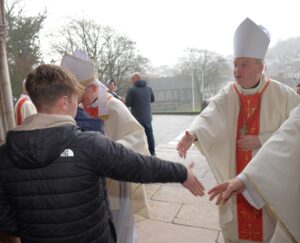
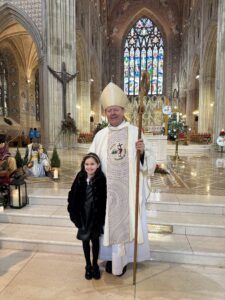
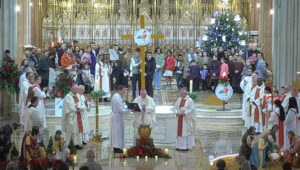
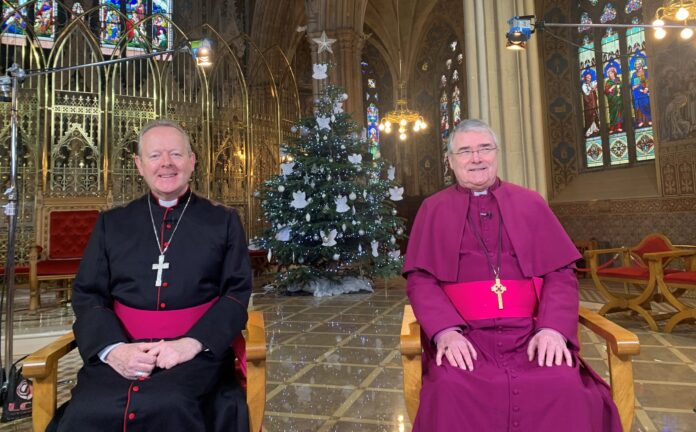
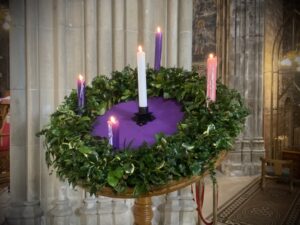
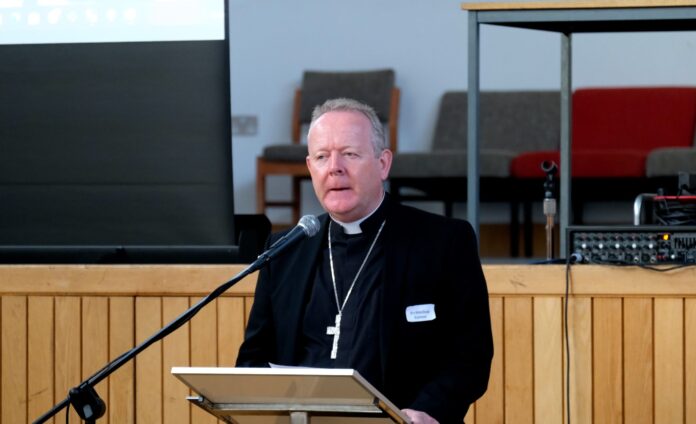
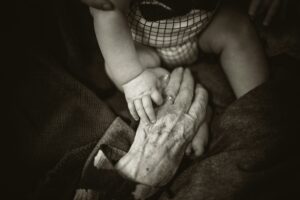
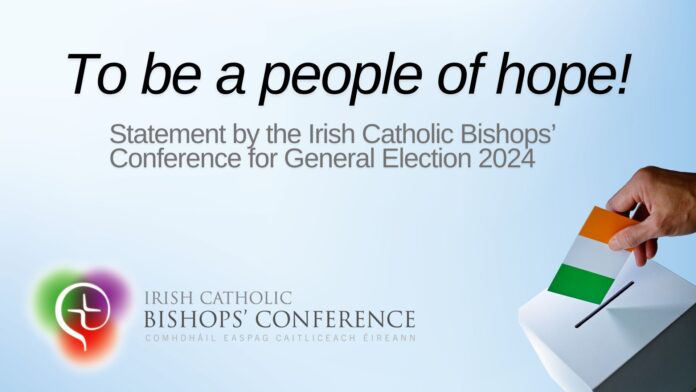
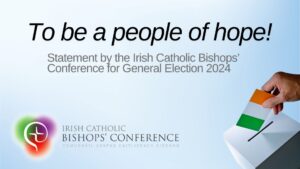
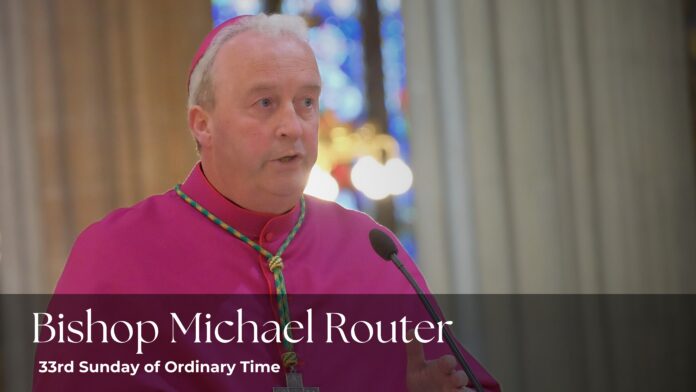
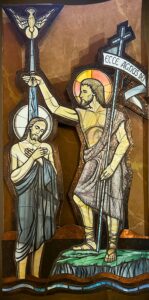 A New Path Forward: Reflections on the Synod
A New Path Forward: Reflections on the Synod
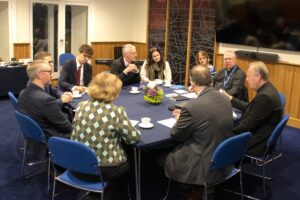 The Church Leaders Group (Ireland) met with the Secretary of State for Northern Ireland, the Rt Hon Hilary Benn, MP, yesterday, 6 November, in Assembly Buildings, Belfast, at what was the Group’s first meeting with Mr Benn since he was appointed in July.
The Church Leaders Group (Ireland) met with the Secretary of State for Northern Ireland, the Rt Hon Hilary Benn, MP, yesterday, 6 November, in Assembly Buildings, Belfast, at what was the Group’s first meeting with Mr Benn since he was appointed in July.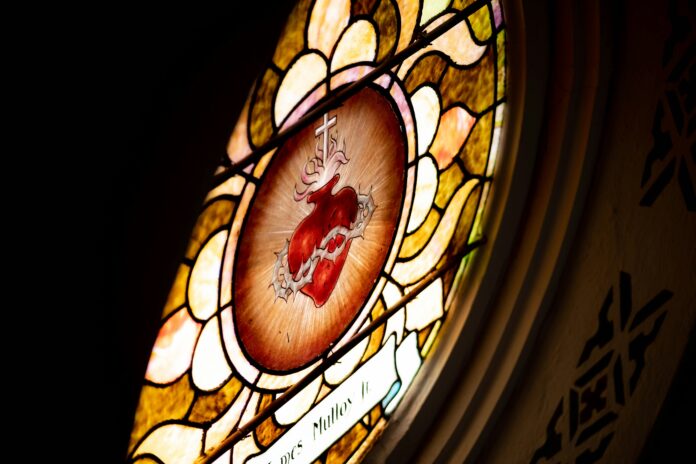
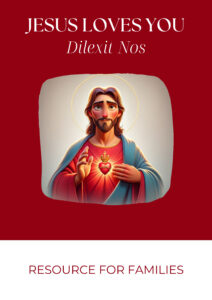
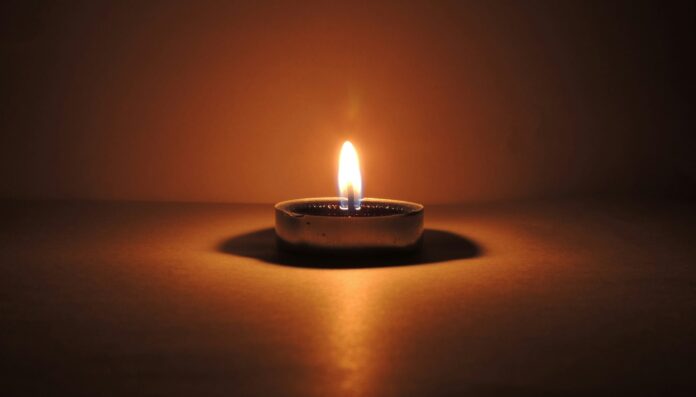
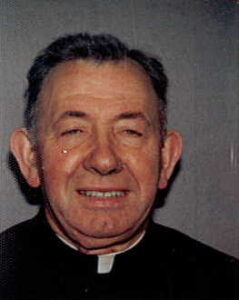
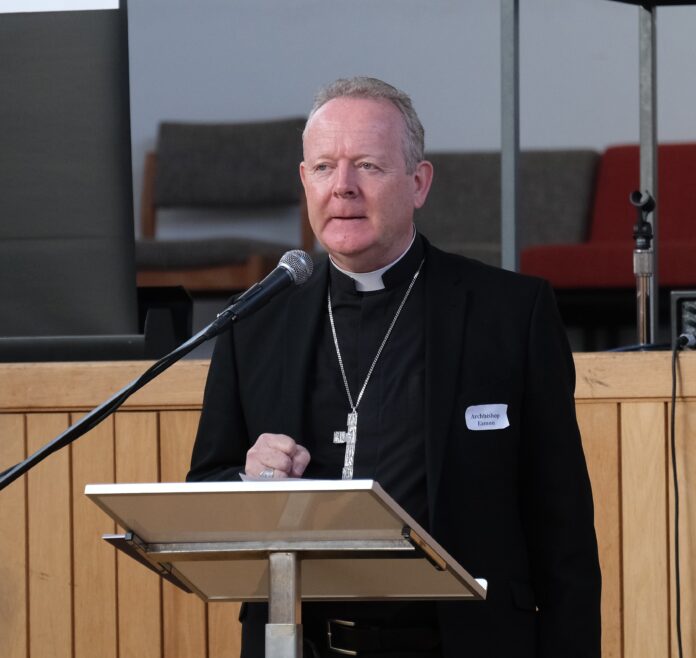
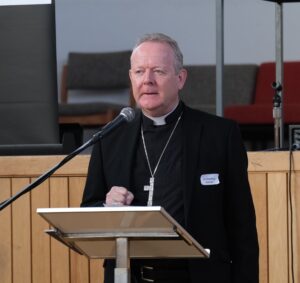 Tomorrow, Wednesday, a bill will be introduced into the Westminster Parliament to propose a change in the law to permit assisted suicide, and on Thursday the Final Report of the Joint Committee on Assisted Dying will be discussed by Oireachtas members in Dáil Éireann.
Tomorrow, Wednesday, a bill will be introduced into the Westminster Parliament to propose a change in the law to permit assisted suicide, and on Thursday the Final Report of the Joint Committee on Assisted Dying will be discussed by Oireachtas members in Dáil Éireann.